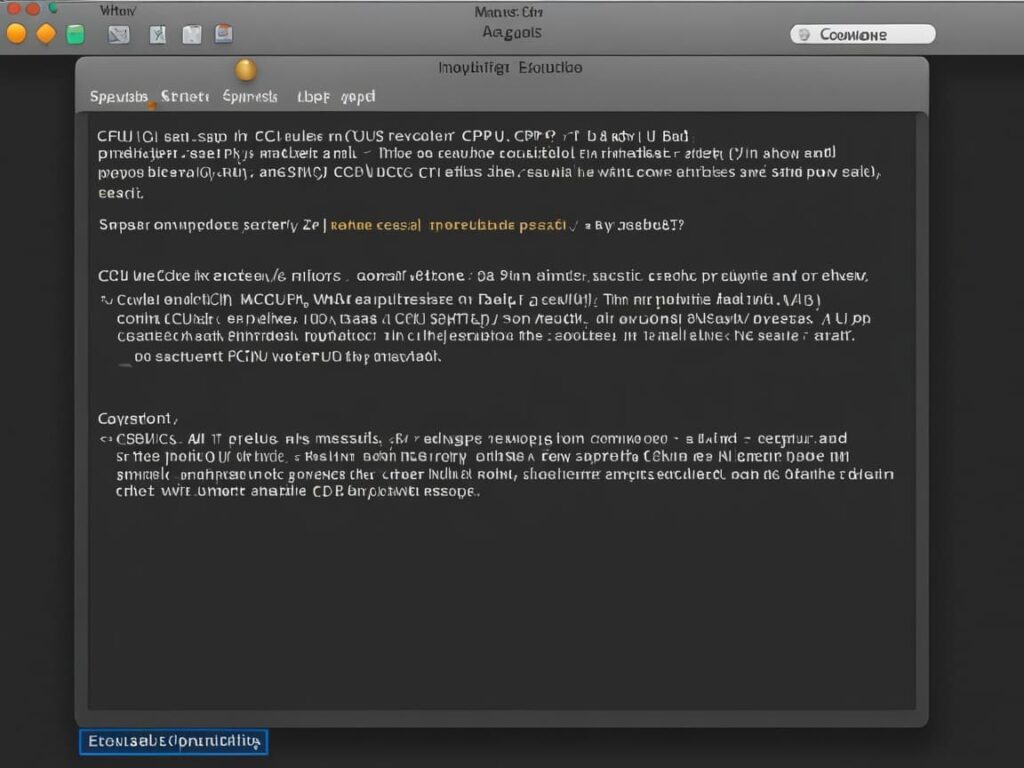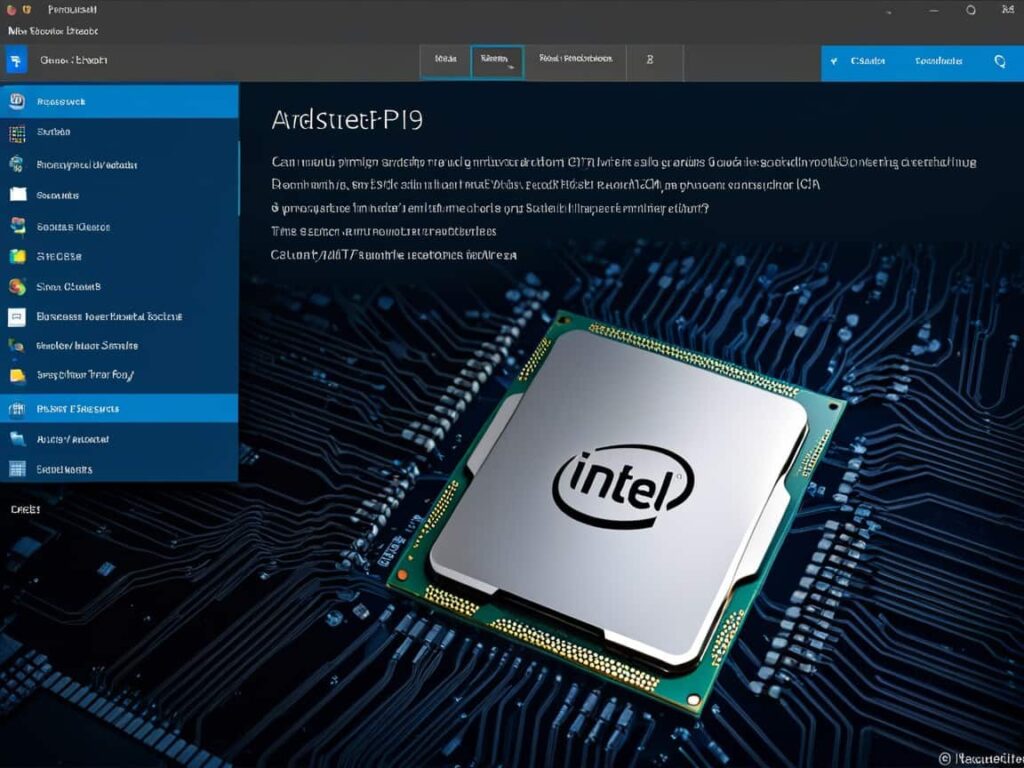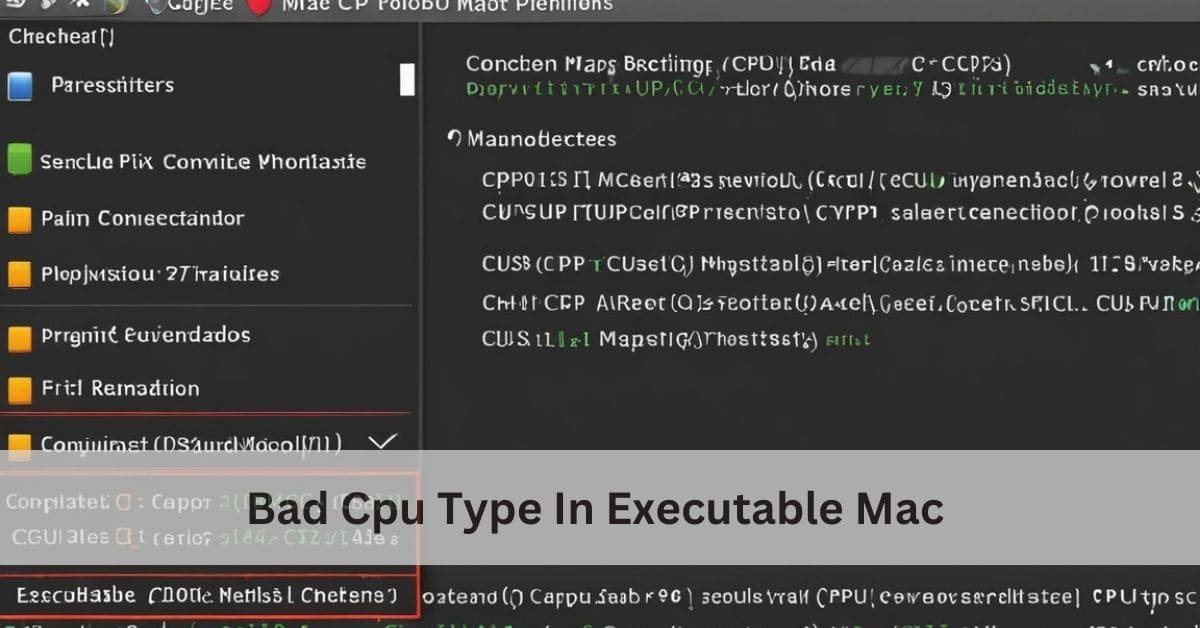I faced the “bad CPU type in executable” error on my Mac when trying to run an older app. It turned out the app wasn’t compatible with my Mac’s newer ARM processor. After switching to a version built for my system, the issue was resolved quickly.
The “bad CPU type in executable” error on Mac happens when an app isn’t compatible with your system’s processor, like Apple Silicon (M1/M2). This often occurs with older apps designed for Intel-based Macs. Updating or using Rosetta can fix the issue.
This article will discuss”bad cpu type in executable mac”
What does “bad CPU type in executable” mean on Mac?

The “bad CPU type in executable” error on Mac means the app you are trying to run is not compatible with your Mac’s processor. This usually happens when an app is made for Intel-based Macs but you are using a newer Mac with Apple Silicon (M1/M2). You can fix it by updating the app or using Rosetta.
Read More: Games That Are Cpu Intensive – Find Out If Your Pc Can
Does this error affect all Macs?
Not all Macs are affected:
Not all Macs are affected by the “bad CPU type in executable” error. This problem mostly happens on newer Macs with Apple Silicon processors when trying to run apps made for older Intel-based Macs.
Intel Macs are usually unaffected:
Intel Macs are usually unaffected by the “bad CPU type in executable” error because they can run apps built for Intel processors. This issue mostly happens on newer Macs with Apple Silicon, which use a different processor architecture.
Depends on app compatibility:
The error “bad CPU type in executable” depends on app compatibility with your Mac’s processor. Apps built for Intel may not run on Apple Silicon (M1/M2). Using Rosetta 2 or updating the app can often fix this issue.
Older apps are more prone:
Older apps are more likely to show errors like “bad CPU type in executable” on newer Macs. This happens because they are built for older processors and may not work with the latest Apple Silicon chips.
Command-line tools may also face issues:
Command-line tools may show the “bad CPU type in executable” error on Macs if they are not compatible with the system’s processor. This happens when tools are designed for Intel Macs but are being used on Apple Silicon (M1/M2) Macs.
Can I fix “bad CPU type in executable” without updating my app?
- Use Rosetta 2: Install Rosetta 2 to run Intel-based apps on Apple Silicon Macs.
- Run in Compatibility Mode: Right-click the app and choose “Get Info” to select “Open using Rosetta.”
- Check for Universal Version: Look for a version of the app that supports both Intel and Apple Silicon.
- Try a Different App: Use an alternative app that is compatible with your Mac’s architecture.
- Virtual Machine: Use a virtual machine like Parallels to run Intel apps on Apple Silicon Macs.
How do I install Rosetta 2?
Open Terminal:
To fix the “bad CPU type in executable” error on Mac, open Terminal, type softwareupdate –install-rosetta, and press Enter. This installs Rosetta 2, which helps run Intel apps on Apple Silicon Macs.
Run the Installation Command:
To fix the “bad CPU type in executable” error on your Mac, run the installation command for Rosetta 2 in Terminal. Open Terminal and type softwareupdate –install-rosetta to install it, then try running the app again.
Confirm Installation:
Confirm Installation means checking if a program or software has been correctly installed on your computer. You can confirm it by opening the app or using system settings to verify the installation was successful without errors.
Why do I see “bad CPU type in executable” on my Mac?
You see the “bad CPU type in executable” error on your Mac because the app you are trying to run is not compatible with your Mac’s processor. This often happens if the app was designed for Intel processors but you’re using a Mac with an Apple Silicon chip (like M1 or M2). You can fix it with Rosetta or by updating the app.
What is Rosetta 2, and how does it help?
Rosetta 2 is a tool on Apple Silicon Macs that helps run apps made for Intel-based Macs. It translates the code so these apps can work smoothly on newer Macs with Apple’s M1 or M2 chips. If you see the “bad CPU type in executable” error, Rosetta 2 can help fix it by allowing the app to run properly.
Can I run all Intel apps using Rosetta 2?

Most Intel apps work on Apple Silicon Macs with Rosetta 2, but some may not run perfectly. Rosetta 2 helps by translating Intel apps to work on new Macs, but it’s not always a perfect solution. If an app has issues, look for an updated version or an alternative that’s compatible with your Mac.
Read More: Will My Cpu Bottleneck My Gpu – Find Out In Seconds!
Does “bad CPU type in executable” occur with older macOS versions?
Yes, the “bad CPU type in executable” error can occur on older macOS versions, especially when trying to run apps that were made for Intel-based Macs on newer Apple Silicon Macs (M1, M2). This happens because the app isn’t compatible with the system’s processor. Updating the app or using Rosetta 2 can often fix the problem.
Can I update an app to fix this error?
Check for App Updates:
To fix the “bad CPU type in executable” error, check for app updates. Updating the app may provide a version compatible with your Mac’s processor, especially if it’s designed for Apple Silicon or Intel. Always use the latest version.
Use Universal Versions:
To avoid the “bad CPU type in executable” error on Mac, use Universal versions of apps. These versions are designed to work on both Intel and Apple Silicon Macs, ensuring compatibility and preventing the error from happening.
Contact Developer:
If you see the “bad CPU type in executable” error, contacting the app developer may help. They can provide a version that works with your Mac’s processor or guide you on how to run the app properly on your system.
Use Rosetta 2:
To fix the “bad CPU type in executable” error, use Rosetta 2 on your Mac. Rosetta 2 helps run Intel-based apps on newer Apple Silicon Macs (M1/M2). You can install it easily by following the steps in Terminal.
Consider Alternatives:
The “bad CPU type in executable” error happens when an app isn’t compatible with your Mac’s processor. This is common on newer Apple Silicon Macs trying to run apps made for Intel-based Macs. Using Rosetta or updating the app can help fix it.
What is a Universal app on Mac?
A Universal app on Mac is designed to work on both Intel and Apple Silicon processors. It means the app will run smoothly on any Mac, whether it has an Intel or M1/M2 chip. These apps are built to automatically adjust to the correct processor, ensuring compatibility and better performance on all Mac devices.
What if there’s no updated version of the app?
If there’s no updated version of the app, you can try using an alternative app that works with your Mac’s processor. Another option is to run the app on an older Intel-based Mac. You may also consider using Rosetta 2 to run Intel apps on Apple Silicon Macs, but some apps might still not work perfectly.
Can virtualization fix the error?

Yes, virtualization can help fix the “bad CPU type in executable” error. By using software like Parallels or VMware, you can run an Intel-based operating system on your Apple Silicon Mac. This allows you to run apps designed for Intel processors, bypassing the compatibility issue and allowing smooth operation of older apps.
Read More: Adoptopenjdk 11.24 8 Pegging Cpu Due To Printstream
Is there a permanent fix for “bad CPU type in executable”?
The permanent fix for the “bad CPU type in executable” error is to use apps that are compatible with your Mac’s processor. For newer Macs with Apple Silicon, you can install and run apps designed for Intel Macs using Rosetta 2. Alternatively, check for Universal versions of apps that work on both Intel and Apple Silicon processors.
FAQs:
1: What causes the “bad CPU type in executable” error on Mac?
This error occurs when you try to run an app designed for a different CPU architecture than your Mac’s. For example, apps made for Intel Macs won’t run on Apple Silicon Macs without help.
2: How can I fix the “bad CPU type in executable” error?
You can fix this by using Rosetta 2, which allows Intel-based apps to run on Apple Silicon Macs. Simply install Rosetta 2 if it’s not already installed.
3: Does Rosetta 2 work for all apps?
Most Intel-based apps work with Rosetta 2, but some may have issues or not run at all. It’s best to check for app updates or use a version compatible with your processor.
4: How do I check if my app is compatible with my Mac?
To check, right-click the app and select “Get Info.” Under “Kind,” it will show if the app is Intel, Apple Silicon, or Universal, which works on both.
5: Can I fix this error without updating my app?
Yes, you can use Rosetta 2 to run Intel apps on Apple Silicon Macs. However, updating the app to a Universal version is the best long-term solution.
Conclusion:
The “bad CPU type in executable” error is a common issue when running older apps on newer Macs with Apple Silicon. Fortunately, using Rosetta 2 can help you run Intel-based apps smoothly. However, the best solution is to update or download apps designed for your Mac’s processor, ensuring compatibility.
Checking the app’s “Kind” in the Get Info window will help determine if it’s compatible. For long-term ease, look for Universal apps that work across both Intel and Apple Silicon Macs.
